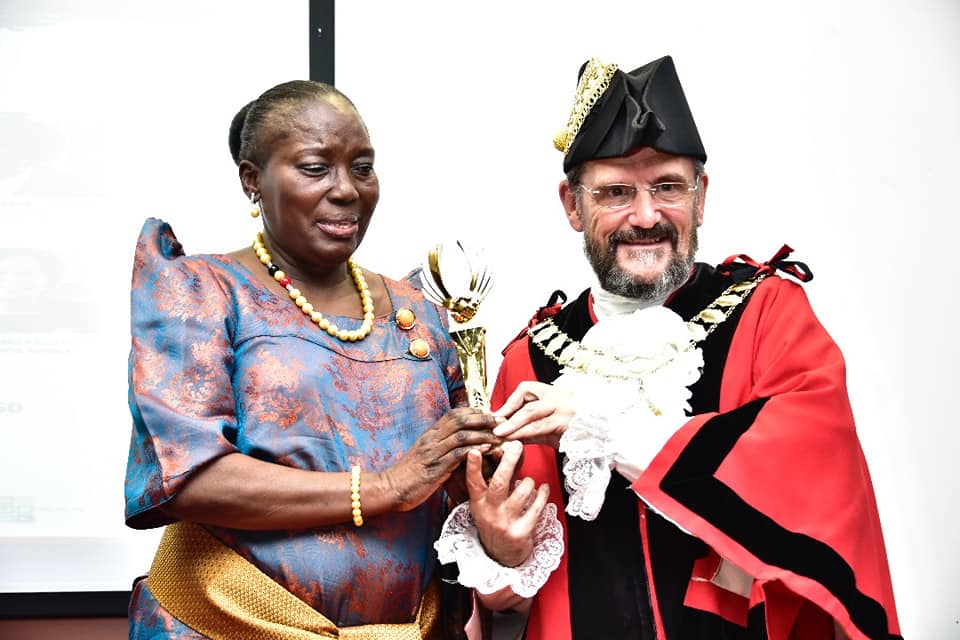
KAMPALA- Usually when young people fall in Love, it is easier for them to suggest marriage because at this age, one does not know what he/she is giving up when he says yes to marriage.
For the ladies, when they mature [at least above 20], they shift their attachment to material gain and begin weighing their partners to find out whether they can financially be able to sustain them.
We may be in denial but it is the hard truth that many women enter into a loveless marriage simply because the man earns enough.
And I think it is the finances which most women see when they suggest or give in to the statement, “Let’s get married” for they see happiness, joy and comfort in marriage when the finances are up.
But from divorce statistics and broken-heart letters, many married people do not achieve the happiness they so wish to get even when the financial stability is superb.
Many of the fairy tales we have heard end in “So they married and lived happily ever after” are hinged on the financial stability of the family.
“Even if he does not have money but provided he loves me,” is one outdated statement that has lost its value today. Please save yourself the embarrassment if you still think it holds water.
Ms Agatha Nafuna, a traditional marriage counsellor says even in the traditional African society, our Great grannies would ask several questions before they allowed their daughters to get married to any suitor.
And adds that the situation seems to have not changed today many a woman is seeking financial security and material comfort in a marriage rather than emotional compatibility and love.
“Even in traditional rural marriages, prominent among the questions is usually: What has the man got to offer for our beautiful girl, even when the girl is ugly. What this means is that our society views the man as a major income earner in the home after marriage, so what do you expect the women to do?” asks Ms Nafuna.
Mr. Stephen Wasukira, a marriage counsellor at a Pentecostal church says in patriarchal societies where the man tends to be the main income earner in the family it is the norm for a woman to marry for the sake of financial security and convenience. He adds that a financially independent woman is seen as a major source of competition and makes a man feel insecure.
Mr. Wasukira says that even in today’s churches, despite the Biblical clarity that we were all made in the image of God and therefore should be regarded as human beings, ladies still see some men as half men because of their poor financial base and usually shun them.
“This explains why there are many unmarried girls in their late 20s and late 30s in the church today because they [most] are looking for men who are rich,” says Mr Wasukira.
He explained that it is difficult to change such a mindset and that it has become a fact since love cannot survive on air and water but must face the hard realities of life – money.
Dr Moses Nambale, a Don at Uganda Christian University says a stable relationship often involves planning a future, whatever that looks like: renting together, buying a house, owning cars, having kids, and taking lots of vacations.
“And whatever your path looks like, money is important because where you spend it is going to dictate how you live, and how you achieve your goals together,” said Dr Nambale.
He explained that romantics claim money cannot buy love, proving that though, may not even be possible, since love is not as simple as arithmetic.
He added that what has been evident throughout human history, however, is that money does have a power to either make or break a relationship and that those who are not driven by greed might believe financial matters will never stand between them and their partner, but sometimes that turns out to be wrong.
A research study by the Texas Tech University suggests that economic hardship evidently has negative effects on marriages.
The research report adds that couples with extreme financial stress tend to have lower levels of satisfaction in their relationships and that emotionally strained by their financial struggle, some people become more hostile, irritable or uncommunicative toward their spouse.
Dr Nambale says many couples even point fingers at one another for their financial downfall and that this is not to say, however, that low-income couples are doomed to have less successful relationships than millionaires.
“But with constructive communication and compromise, a financially challenged couple can save their relationship and thrive through their financial crisis together,” says Dr Nambale, also a marriage counsellor.
Ms Sarah Kataike, a business woman in Bweyogerere says that it is very important for a man to be financially stable while dating.
“I have previously dated a man who made less money than I do. Although our relationship had started in earnest and had the promise of ending up at the altar, it soon hit the rocks because of our earnings,” she says.
Ms Caroline Chealy says in her book, Before thee and I wed, “Love is a desire to be together whatever life may bring. It includes the desire to cherish and care for each other. But today things do not go this way and it is now an almost accepted norm that without the financial power, you will not date a girl.”

It is not about finances
It is not all about finances. He can be wealthy but filthy,” says Carol Nambi, a 30-year-old teacher.
Nambi says a year ago she was in a relationship with a financially well off man whom she ended up breaking up with due to his poor hygiene.
“He had good money, a fleet of vehicles and a big businessman but then there was this bad whizz of smell that hovered around him. Today it would be stinky socks, tomorrow sweaty, unshaved armpits, and the day after recycled shirts, which I could not stand,” says Nambi.
Mr David Kato, a born again accountant says that these women may not be so wrong and points out that regardless of his earnings, a man will communicate a lot about how he takes life and responsibilities by the way he grooms.
“You can’t go to a date in a shirt that is not ironed, unkempt hair, long, dirty nails and still expect to get an approval and all these require money,” he says.
Mr Kato adds that there is also the fear that men who have pulled themselves from poverty to riches are arrogant and stingy, which causes women to shy away from dating them.
Sarah Namutebi says that she was previously in a relationship with such a man.
“I admired the fact that he had seen the worst in life and gone on to beat it. But then I realised that he was arrogant and condescending. He would throw words such as ‘Your family is rich and can get you a richer husband! You can’t go to a government hospital because you’re used to expensive private ones! Your rich family doesn’t need my dowry!” She says.
A year later, she terminated the relationship because it had turned into a circus of trying to prove that she was not dating him for his money.
Is there love in relationships that are hinged on money”?
A great number of ladies today divorce their husbands or chuck their boyfriends when they fail to provide for their heart and physical desires that require money.
When our ladies begin dating Europeans [Whites] without knowing what they are and despite their nasty smell, old age, there is not even a gesture of love but rather the interest is on the material and financial gains.
It is common knowledge today that when you date a lady or get married to her, you should stop deceiving yourself that she is in Love with you but rather she is attached to something in your possession.
It is also true that because relationships today are hinged on a strong financial attachment, there is an overly strong physical attachment, which lacks adequate emotional and psychological anchoring to measure into real love.
“Strive to change your attitude towards yourselves and begin to value yourselves and the people you intend to date as a credible human resource that simply needs to be helped to move.”
And to the communities out there, there is great need to put in place institutions that will help the young towards meaningful relationships built on love and trust but not hinged on materialism.





